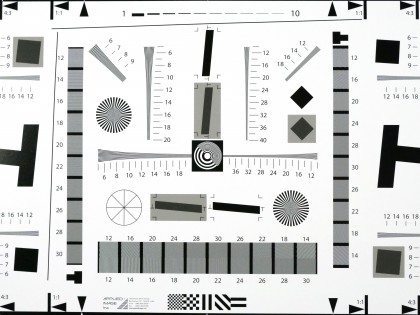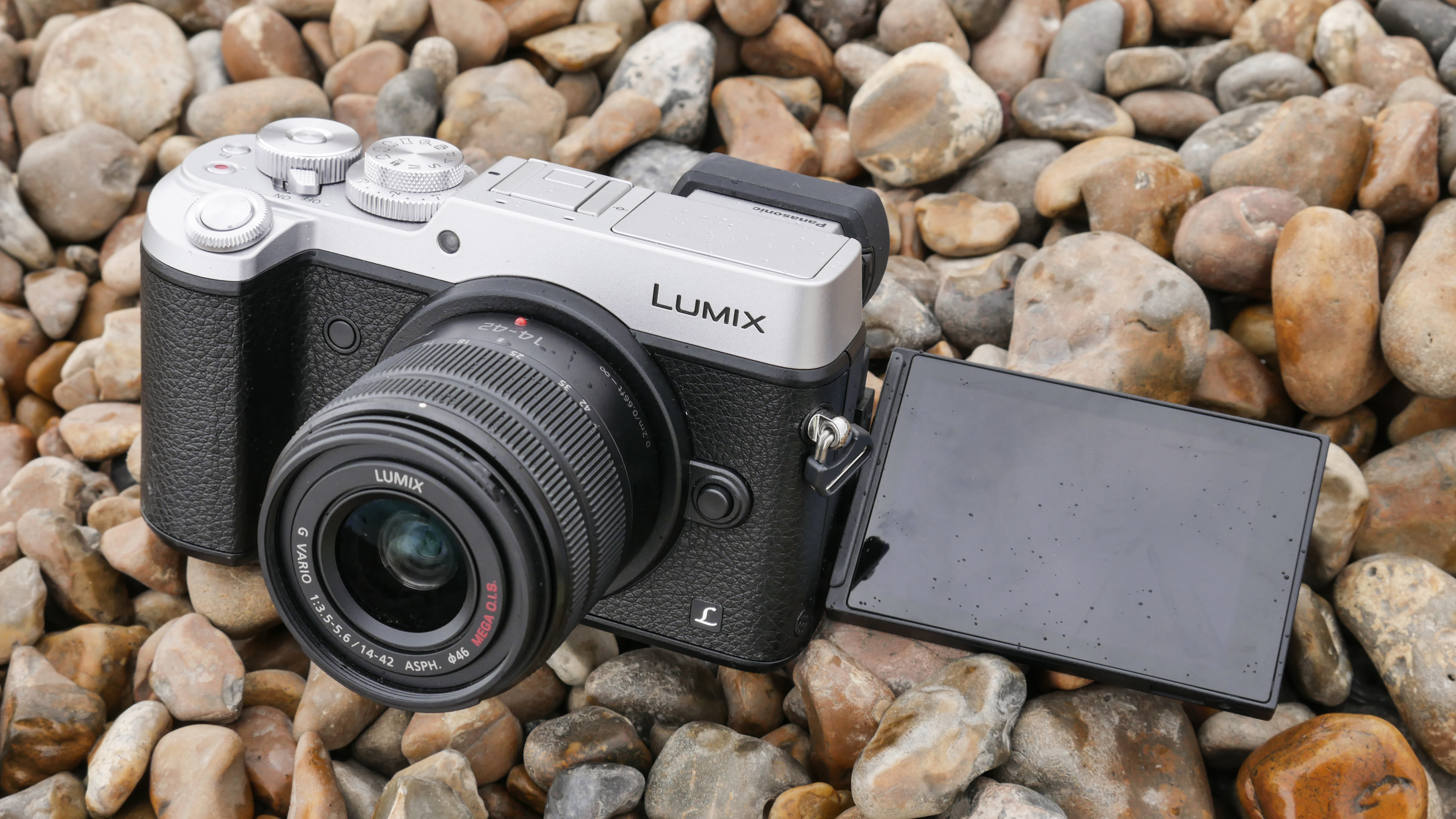Why you can trust TechRadar
We chose three rival cameras for the Panasonic GX8 to see how it measured up in our lab tests: the Olympus OM-D E-M5 II, Fuji X-T10 and Sony Alpha A6000.
We've carried out lab tests on the Panasonic GX8 across its full ISO range for resolution, noise (including signal to noise ratio) and dynamic range. We test the JPEGs shot by the camera, but we also check the performance with raw files. Most enthusiasts and pros prefer to shoot raw, and the results can often be quite different.
Panasonic GX8 resolution charts
We test camera resolution using an industry-standard ISO test chart that allows precise visual comparisons. This gives us numerical values for resolution in line widths/picture height, and you can see how the Panasonic GX8 compares with its rivals in the charts below.
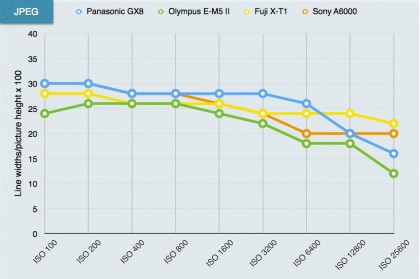
JPEG resolution analysis: The GX8's resolution scores compare favourably with those from the Olympus OM-D E-M5 II, Fuji X-T10 and Sony Alpha A6000 up to ISO 6,400.
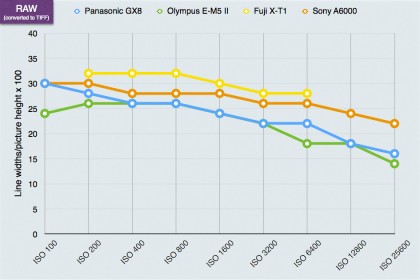
Raw (converted to TIFF) resolution analysis: While scores at low sensitivity settings are good, they drop off as sensitivity rises and achieve a lower score than the JPEGs, although this isn't really reflected in real-world images. However, the files are subject to a standard conversion using the supplied Silkypix software, with all noise reduction turned off. A bespoke conversion, made to suit the image, is likely to produce better results.
Sample Panasonic GX8 resolution charts
This is the chart we use for testing camera resolution. The key area is just to the right of centre, where a series of converging lines indicates the point at which the camera can no longer resolve them individually. We shoot this chart at all of the camera's ISO settings, and here are two samples at ISO 200 and ISO 6400.
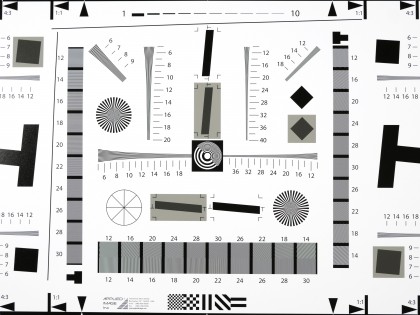
ISO 200: Click here for a full-size version.
